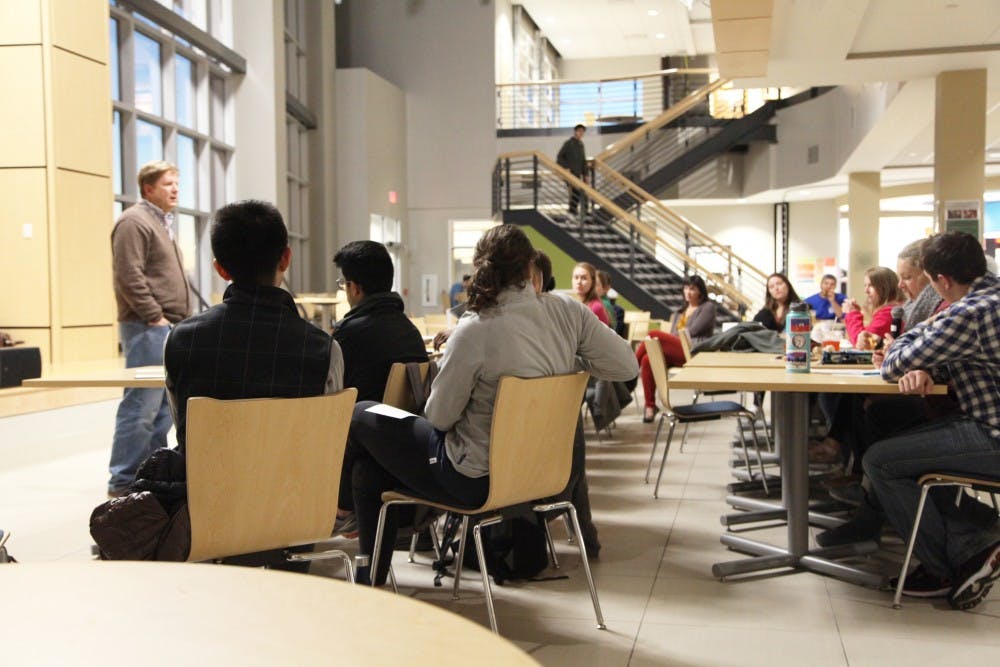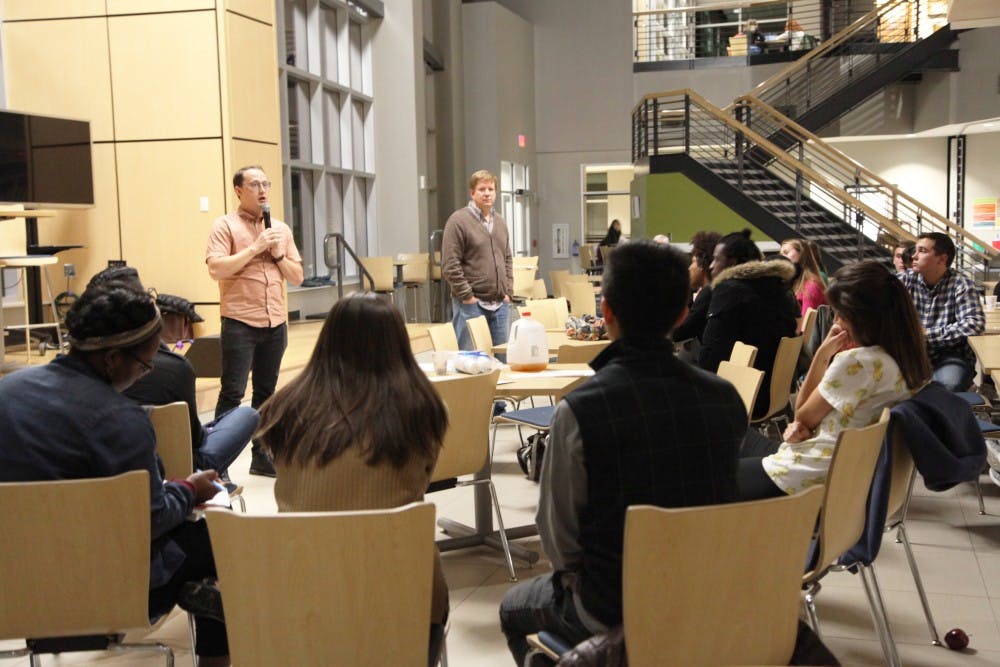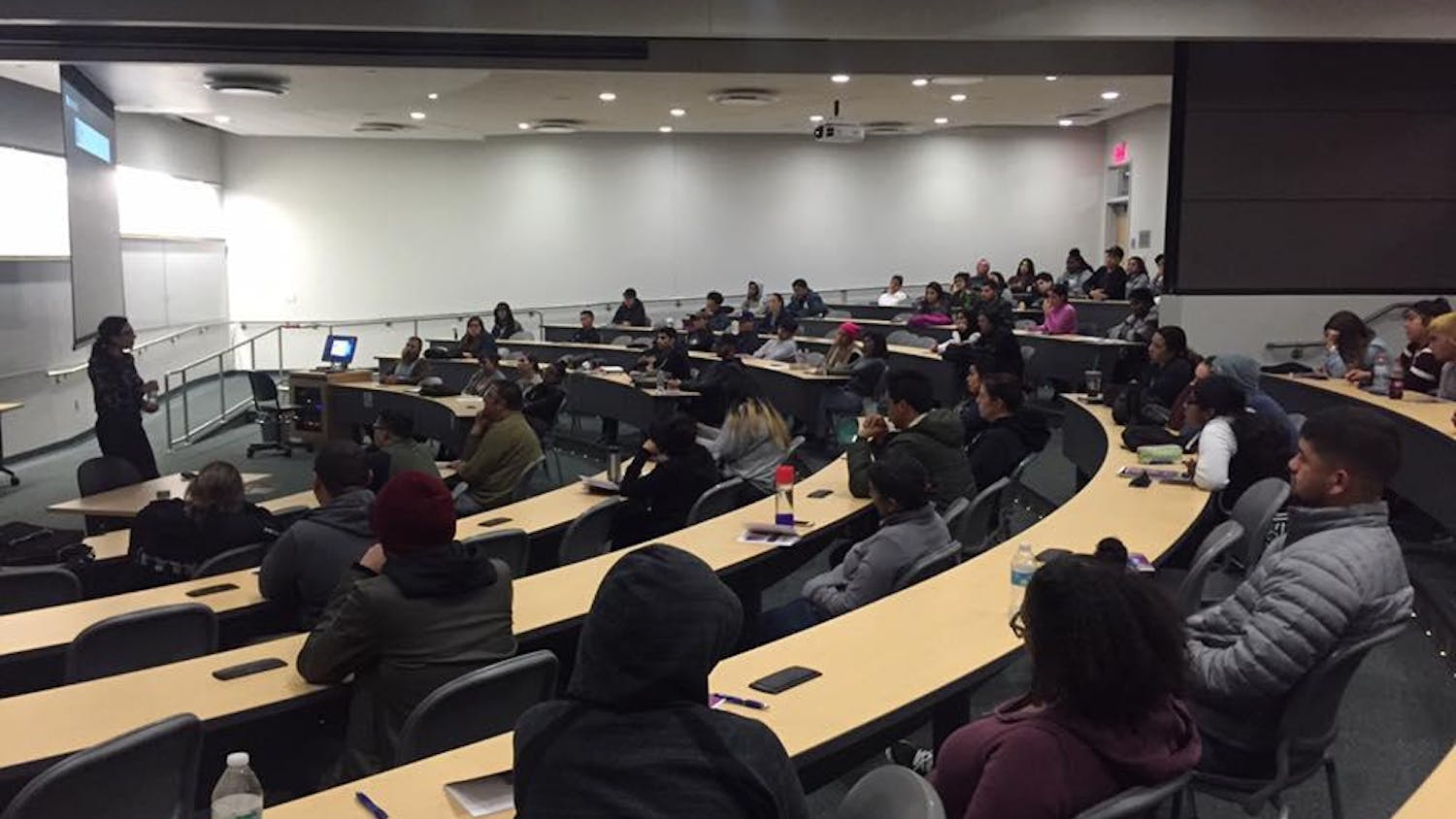By Chrysa Keenon | Echo
Yesterday evening, a conversation about the Deferred Action for Childhood Arrivals (DACA) was held in the campus center.
The DACA initiative started in 2012 under President Obama. It protects immigrants who were brought to America illegally as minors from immediate deportation. These minors are known as Dreamers. According to Fox News, recipients are able to request a consideration of deferred action for a period of two years which is subject to renewal. According to CNN, about 690,000 young adults are currently protected by DACA, and over 34,000 are being processed for the first time.
The evening began with readings of emotional testimonies of people who are affected by DACA, originally published by the New York Times. The stories shared the life experiences of growing up in the United States, such as getting opportunities to go to graduate school, but not being able to get accepted without citizen status.
From there, the conversation got broken off into groups to discuss a sheet of questions. Many students spoke about their own personal opinions on the matter.

Junior Sophie Finlay expressed that she wanted to come to the conversation about DACA with an atmosphere for learning. Finlay has no personal experience with a Dreamer or someone affected by DACA, but wants to learn as much as she can before she can form a solid opinion on the issue.
"It is interesting that we talked about two different viewpoints: the castle and the road," junior Rebekah Couch said. "For the castle, everyone can be let in if they adopt the ideology of the kingdom and want to serve the kingdom. But anyone can drive on the road assuming they have (a) license and abide by the rules. Who cares what kind of (car) they drive (or) what color it is or what kind of music (they) listen to in it, aside from it maybe giving an indication of who they are."
Sophomore Olivia Huber believes it's important to remember that this issue is based around the lives of people, often around the lives of children. Though she does not know anyone directly affected by DACA, she wants to learn about the issue so that immigrants can speak about it when they might not feel comfortable to otherwise.
After groups conversed for 30 minutes, Logan Hoffman, a Department of Justice accredited representative from Marion, stood and spoke about an experience with a family from Haiti who applied for a temporary protection status (TPS) rather than citizenship in America. When the TPS expired, the family's daughter applied for DACA as an option to stay in the country. Her DACA got recently approved, but with that approval she got the news that in two years it will expire. Hoffman explained this means she will have no driver's license, no ability to fly and is not able to finish university in two years. According to him, she essentially has no option to move forward in America.
"Remember she was brought here when she was three. She had as much part (in) this decision to come here as a three-year-old can possible have. So she has not done this to herself," Hoffman said during the session. "Her story is the typical story of a DACA student."
This was followed by a question and answer session lead by Hoffman. Students brought up questions about Congress, deportation costs, the impact of DACA in the direct community, detention centers, statistics of immigrants and refugee status.
The night ended with a round of applause for the speakers, and the students continued the conversations after the sessions were over.





